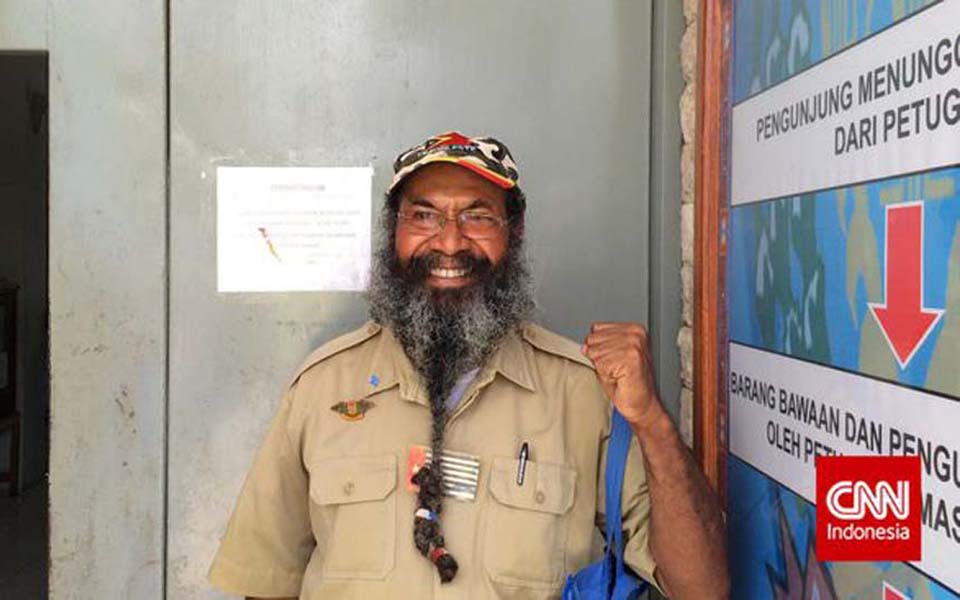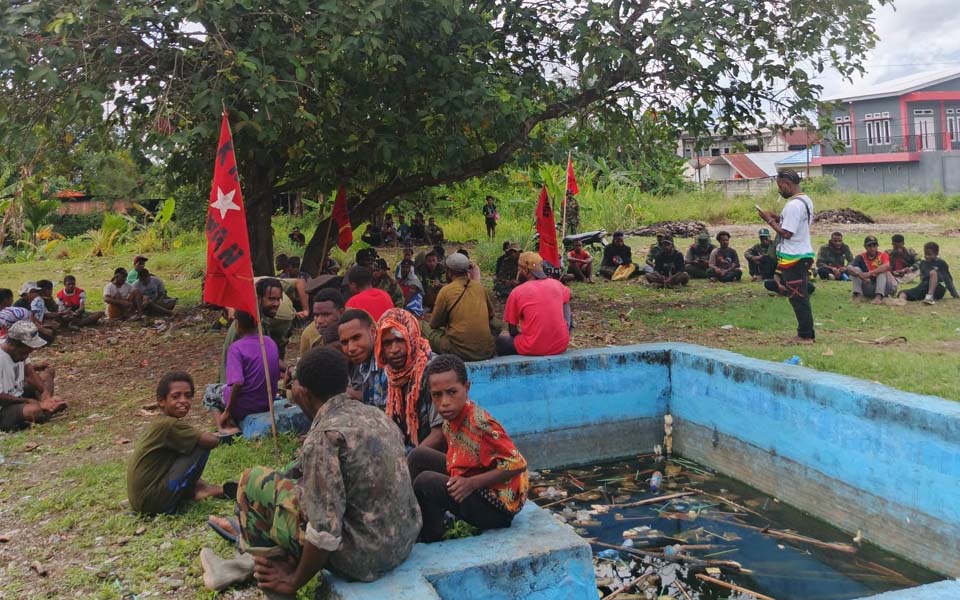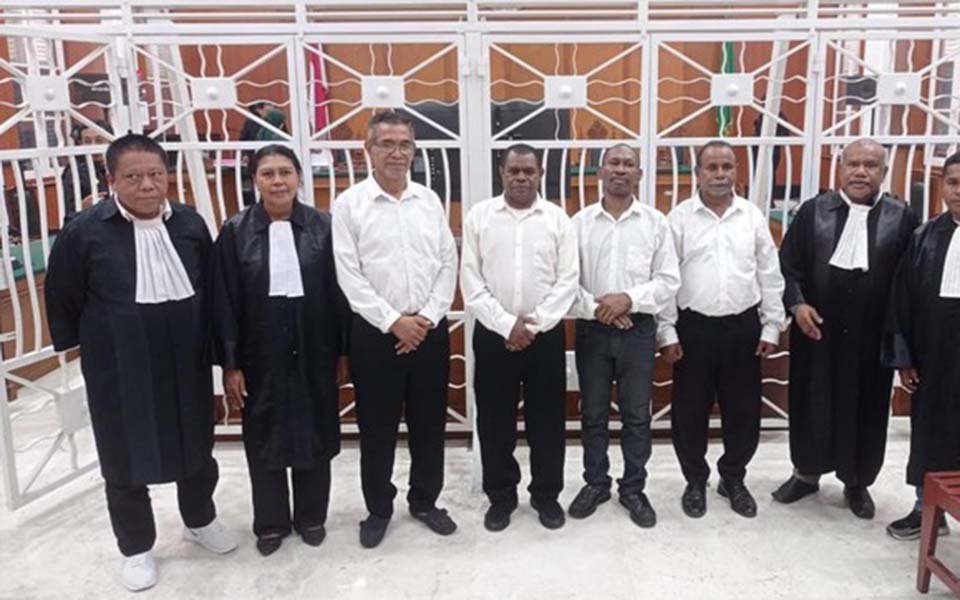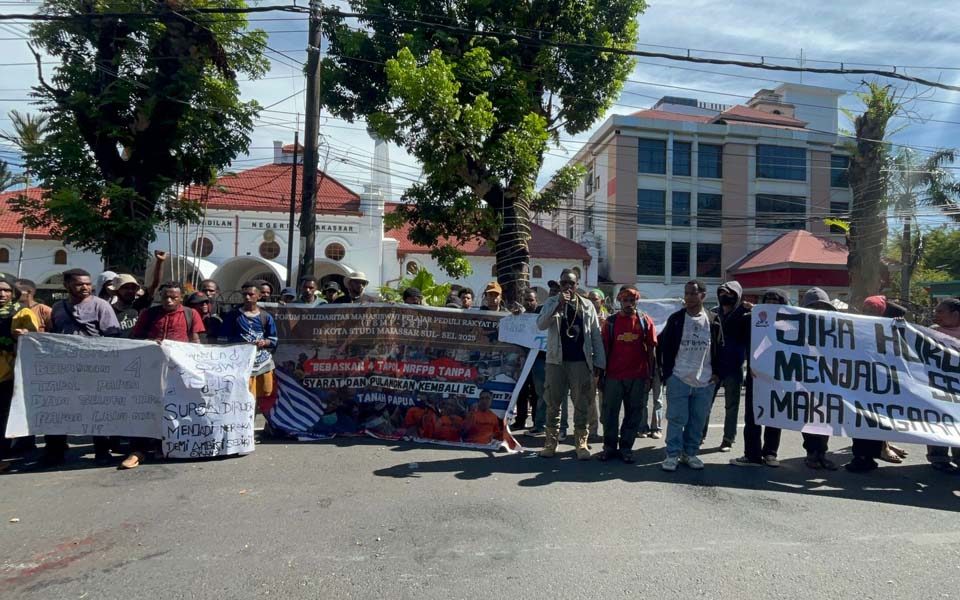Attention and concern. Something ordinary people hope for from their leaders. Such hopes were clearly apparent when Justice and Human Rights Minister Patrialis Akbar visited the Abepura Penitentiary in Papua on Saturday May 15.
Shortly after arriving at the Abepura jail, officials could be seen directing Patrialis towards the auditorium to exchange ideas with prison employees and a number of selected prisoners. As he entered the auditorium however, coming from a cell block around 25 meters from where Patrialis was standing, shouts were suddenly heard from the prisoners. “Open up... open up... uuuuuu, open up,” they shouted noisily.
“Don’t order them to talk [with you]”, said a prison official upon hearing the shouts. The warning however was not heeded. The prisoners continued to shout and bash on the doors and iron barred windows of the cells.
Seeing this, Patrialis decided to approach the prisoners to see the state of their cells first hand. The 4x5 meter cells were occupied by scores of prisoners. Their plight was worsened by a lack of flowing water and the intense heat because there are no fans in the cells.
Strangely, several of the prisoners quickly stopped shouting as Patrialis approached and invited them to speak. Carefully and politely, the prisoners began talking about issues such as the daily conditions they face in the jail to prisoners’ rights, such as the right to sentence deductions.
As Patrialis was speaking with one group of prisoners, there was a sudden shout calling to him from another cell. “Bapak (Mr) Minister, I’m a political prisoner. I want to speak with you,” said the prisoner who turned out to be named Victor (26) in a clear and distinct voice, but without malice.
“Bapak, I don’t want Papua to be full of violence. I just want to ask, why have I been imprisoned [just] because I wanted to voice my wishes? Isn’t expressing an opinion a human right and guaranteed under the 1945 Constitution?” he asked in a calmer voice as Patrialis approached his cell.
Victor, who is a West Papua National Committee activist, related to Patrialis how he has been held for six moths on charges of subversion. Yet all he did was take part in a peaceful protest action. Four of his friends who were also arrested have already been released while he is still waiting on a verdict from the court.
Another prisoner, Sem Yaro, also related how he has been held since November 2009 because he was involved in a demonstration in front of the Papuan People’s Assembly offices questioning Papuan special autonomy. This has led him to question his right to speak as a citizen.
Buhtar Taboni, a convicted prisoner, even entrusted an open letter addressed to President Susilo Bambang Yudhoyono with Patrialis. In the hand written letter, Taboni asks what has happened to the trillions of rupiah sent to Papua after it was granted special autonomy.
“Although they were big and shouted, when invited to talk, they turned out to be very polite,” said Patrialis, although he admitted to feeling frightened when he first heard the convicts and prisoners’ shouts.
Patrialis said that this proves that the penitentiary’s occupants really only need attention and respect. “As fellow citizens and human beings, they still have rights and our job is to fulfill them” he said. (m hernowo)
[Translated by James Balowski.]















